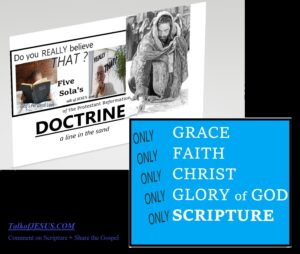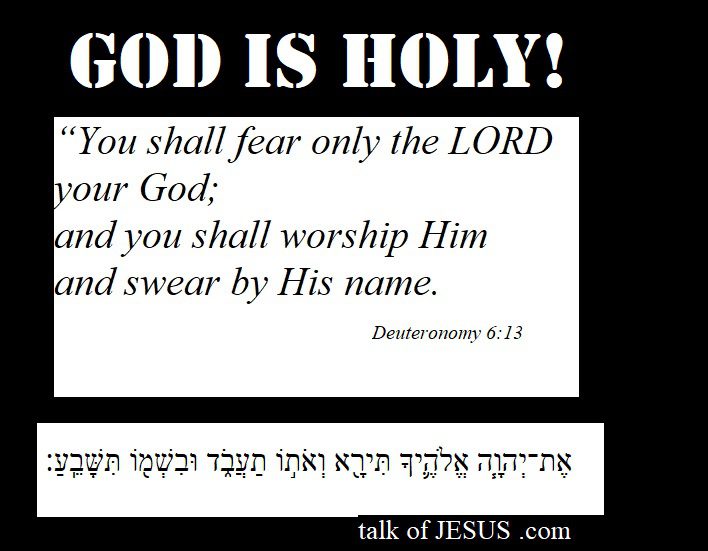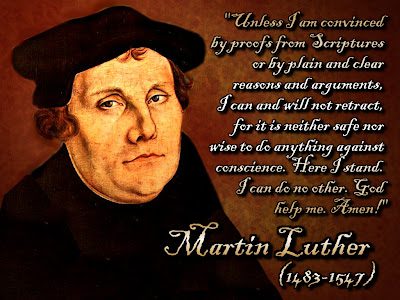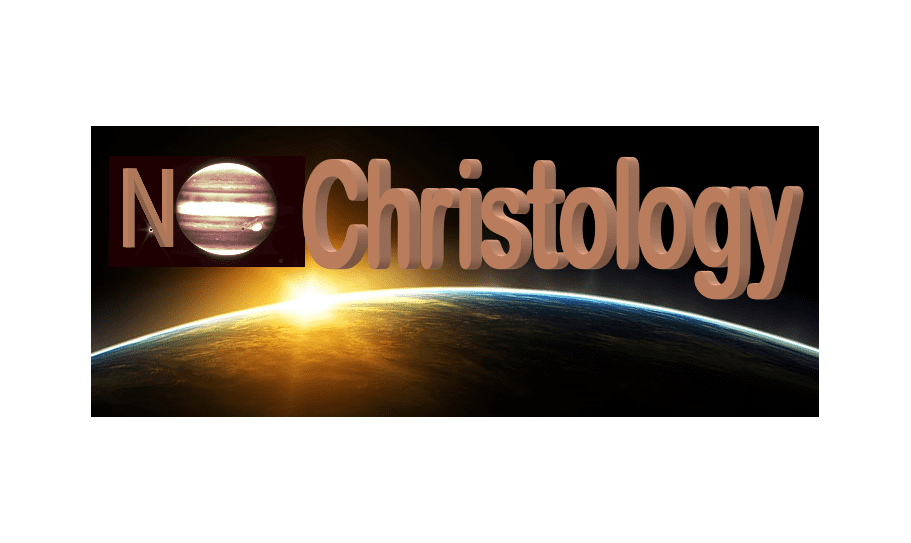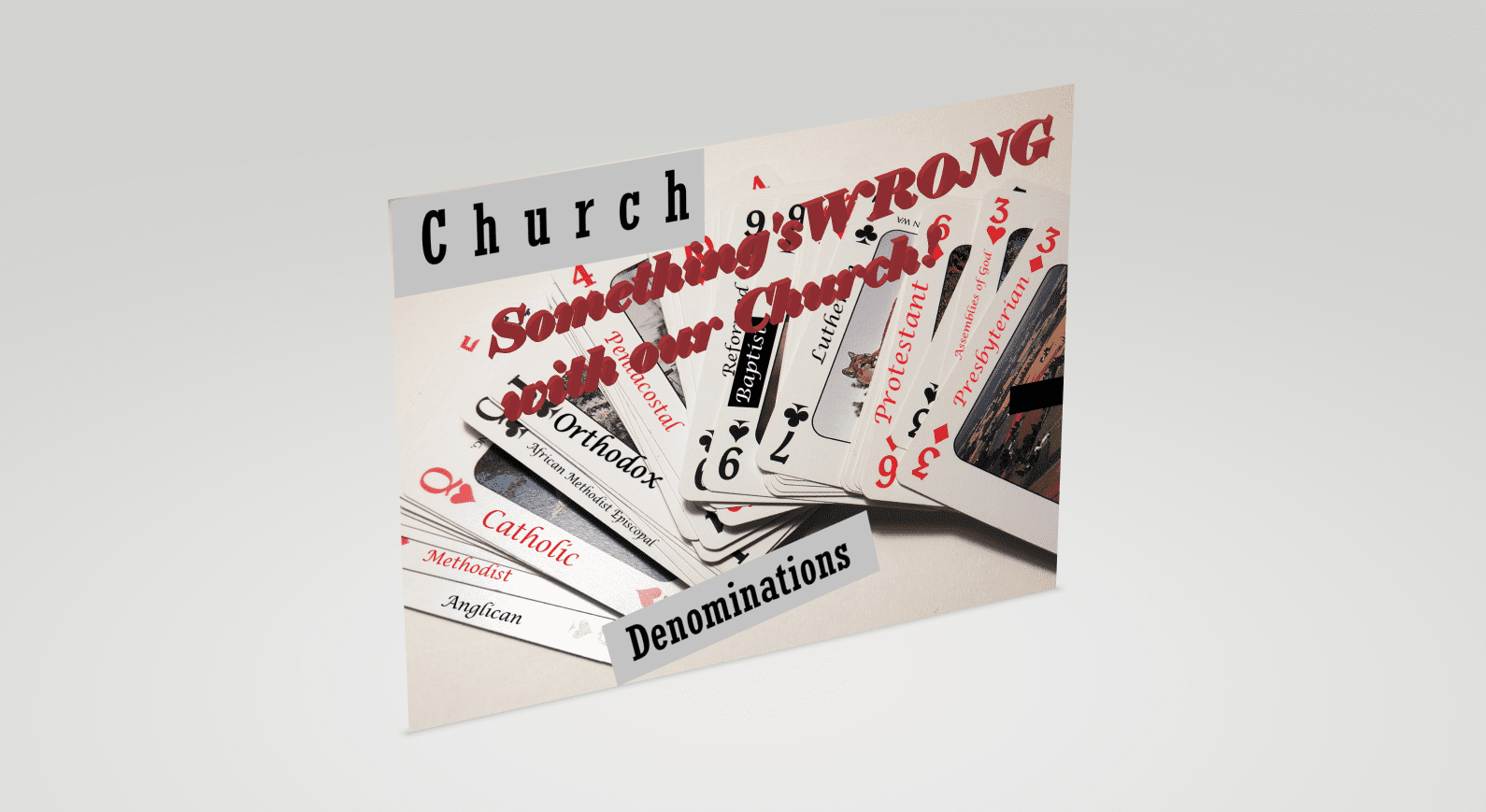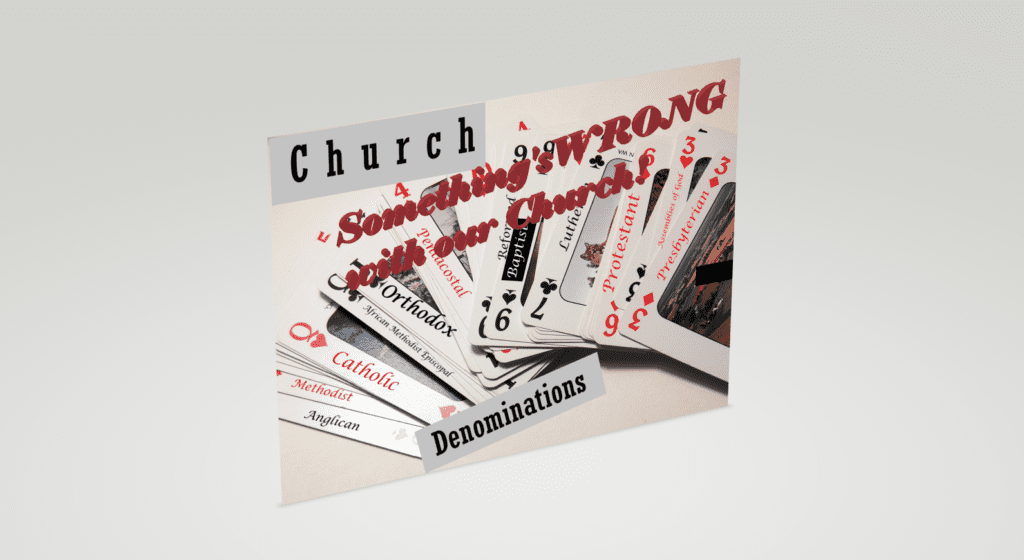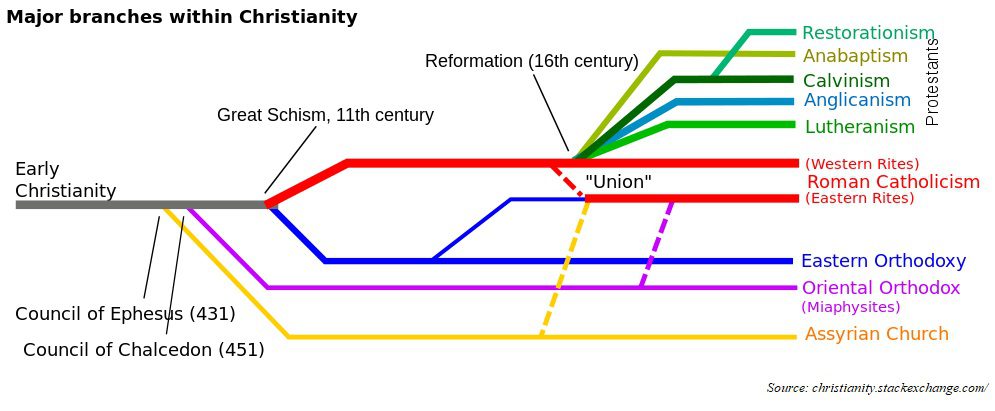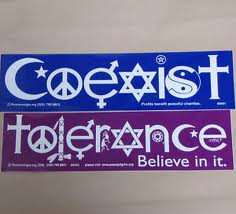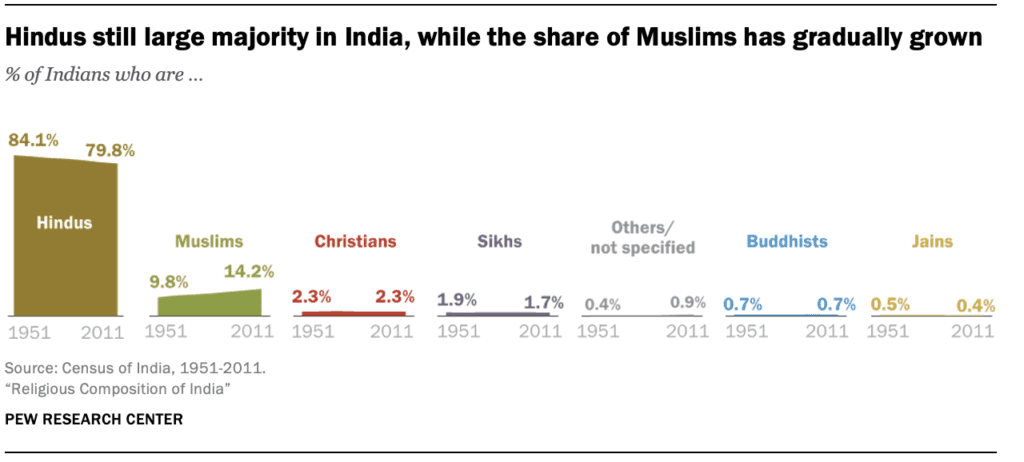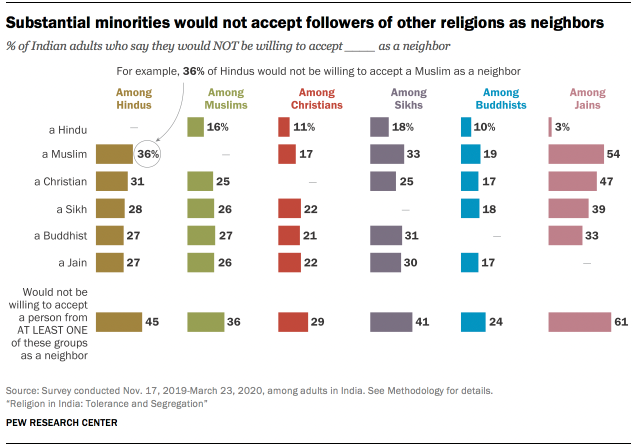Kingdom OR Church?
Is distinction lacking in the Gospel of YOUR Church?
WE like to think that OUR Church has a great vision of Gospel grace, but do we PREACH any distinction between DOCTRINES and the WORK of evangelical ‘christians’ from OUR stages of worship?
For there is no distinction between Jew and Greek, for the same Lord is Lord of all, abounding in riches for all who call on Him for “WHOEVER CALLS ON THE NAME OF THE LORD WILL BE SAVED.”
Romans 10:12-13 LSB
That's very nice - a good glance at WHO could be part of the church. BUT the Bible bids us to make some distinctions.
So you will return and see the distinction between the righteous and the wicked, between one who serves God and one who does not serve Him.
For behold, the day is coming, burning like a furnace; and all the arrogant and every worker of wickedness will be chaff; and the day that is coming will set them aflame,” says Yahweh of hosts, “so that it will leave them neither root nor branch.”
Malachi 3:18-19 [4:1]
What are the distinctions of Denominations?
- ARE SOME ‘christian‘ churches the chaff of wicked false teaching?
- Is the gospel of YOUR church drawing in sinners while making no distinction of sin?
- SHOULD some DENOMINATIONS be sifted as anathema to Christ’s Church?
- (So they want to leave PROCLAIMING their SIN proudly?
- Let them go!)
WICKEDNESS is nothing NEW in any 21st century church OR limited to the Old Testament.
- Do SOME lead worship or TEACH a class you attend NEVER ASKING:
- Do YOU make any distinction?
- between
- the damned of the world
- and the repentant sinner SAVED by CHRIST JESUS?
Listen to Paul’s approach to making distinction between gifts and their usefulness to believers of the church:
.. what will I profit you unless I speak to you either by way of revelation or of knowledge or of prophecy or of teaching? Yet even lifeless things, either flute or harp, in producing a sound, if they do not produce a distinction in the tones, how will it be known what is played on the flute or on the harp?
For if the trumpet produces an indistinct sound, who will prepare himself for battle?
The Apostle Paul’s first letter to the Church at Corinth 6b-8
Listen to the trumpet! SOME in the church are chaff!
FOUR Distinctions of Church Doctrine
As we continue discussion from our last Saturday Post just a reminder here that teaching is doctrine. (And so is preaching doctrine, as well as what doctrines which we neglect to preach. – RH)

The theologian Lloyd-Jones outlines
What are the distinctions of Denominations?
The First Distinction
The essential difference between the church and the kingdom of God is that the church is an “expression” of the kingdom, but cannot be “equated” with it.
The church is an expression of the kingdom “wherever the Lord Jesus Christ is acknowledged as Lord.”
D. Martyn Lloyd-Jones – source
The Second Distinction
The Distinction between the Spiritual, Invisible Church
AND
the Local, Visible Church
FROM Paul and all the brothers who are with me,
To the churches of Galatia: – Galatians 1:2
ταῖς ἐκκλησίαις ho ekklēsia –TO: The Churches
Paul and his Christian brothers write to the churches. They are not claiming to write to everyone in Galatia or Corinth or EVERYONE anywhere else in the idol-worshiping gentile world.
Is that OUR approach?
- Isn’t it nice to watch some preacher online (or on T.V.) and conveniently claim to the culture that you are ‘a christian?”
- ARE YOU?
- Simply because YOU watched some christian preacher saying graceful things?
- ARE YOU?
Lloyd-Jones declares that Paul speaks not of “one unit divided into local branches” but of individual churches or a plurality of units in Galatia.
Of course we’re talking about the SPIRITUAL INVISIBLE CHURCH here.
Which ‘christian’ are YOU?
- Spiritual Christian of the Invisible Church PLUS a Local MEMBER of a Visible Church
- NOT a member of Christ’s Invisible Church, BUT a visible MEMBER of YOUR LOCAL church
- NOT a Spiritual Christian OR a MEMBER of any visible Local Church
- (YOU just ‘go to church’ occasionally.)
- Spiritual Christian of the Invisible Church, BUT invisible worshiper NOT a MEMBER of ANY LOCAL CHURCH.
The Third Distinction
Biblical Unity or Ecumenical Unity?
‘The ecumenical movement has tended to minimize doctrinal definitions of what makes someone a Christian.. ecumenical unity is a far cry from Biblical unity.’
“..believers cannot have church unity without unity around the apostle’s teaching..
Everyone who goes on ahead and does not abide in the teaching of Christ, does not have God. Whoever abides in the teaching has both the Father and the Son.
If anyone comes to you and does not bring this teaching, do not receive him into your house or give him any greeting, for whoever greets him takes part in his wicked works. 2 John 1:9-11 ESV
“..the Doctor explains:
The significance he [John the Elder] attaches to doctrine and to truth is so great that he says, in effect, ‘You mustn’t receive the man into your house because if you do you’re encouraging him. If you give him a meal and send him on his journey you are encouraging his false doctrine. Don’t do it.’”
Lloyd-Jones, The Church and the Last Things
If there are spiritual and doctrinal marks that make one church true and another church false, then those marks must be clearly stated and explained.
The Doctor’s Doctrine, p. 106
The Fourth Distinction
As if dealing with the previous three distinctions was not already enough to consider, Lloyd-Jones now adds an even more challenging look at THREE marks of a TRUE CHURCH.
The Distinction between Right and Wrong
Of course by now we must NOT be asking once more, 'What is truth?' as if truth or 'right and wrong' are a matter of subjective personal opinion rather than an objective Biblical standard by which Christians may claim God's Word as Good News to those who will believe.
- the Word is truly preached
- the sacraments are truly administered, AND (look out, here..)
- discipline is truly exercised
Right Preaching and Wrong Preaching
The church is “essential to believers,” because conversion means they are “born as babes in Christ” and desperately need to be “instructed” and “warned against error and safeguarded against heresy.”
Lloyd-Jones, The Church and the Last Things
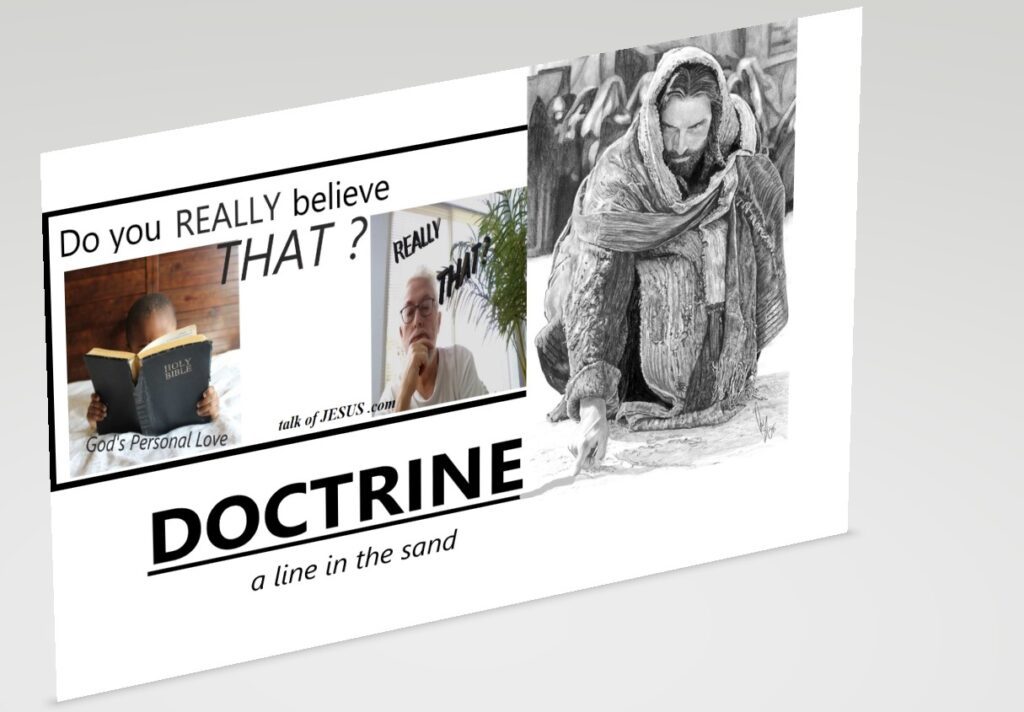
Of course since I am NOT a preacher, I could say anything I want IF subjective truth rather than Biblical truth was our standard of right and wrong.
But by the standard of doctrine rooted in Biblical truth NO theologian (even Lloyd-Jones or your preacher) should take subjective liberties in preaching the Gospel.
I solemnly charge you in the presence of God and of Christ Jesus, who is to judge the living and the dead, and by His appearing and His kingdom:
- preach the word;
- be ready in season and out of season;
- reprove, rebuke, exhort, with great patience and teaching.
And what does the Apostle Paul prophesy to his disciple of the way, the truth and the life as REASON ENOUGH to remain faithful to Scripture?
For the time will come when they will not endure sound doctrine, but wanting to have their ears tickled, they will accumulate for themselves teachers in accordance to their own desires, and will turn away their ears from the truth and will turn aside to myths.
Second Letter of the Apostle Paul to Timothy 4:3-4 LSB
ARE WE THERE YET?
Preaching in the last days
Again, the standard isn't mine (IF you accept the Doctrinal line in the sand of Scripture.
.. in the last days mockers will come with their mocking, following after their own lusts..
The Apostle Peter reminds the church in is final letter, The Day of the Lord Will Come:
The Lord .. is patient toward you, not willing for any to perish but for all to come to repentance.
But the day of the Lord will come like a thief, in which the heavens will pass away with a roar and the elements will be destroyed with intense heat, and the earth and its works will be burned up].
Since all these things are to be destroyed in this way,
what sort of people ought you to be…
What sort of men and women proclaiming Christ Jesus OUGHT WE to be?

